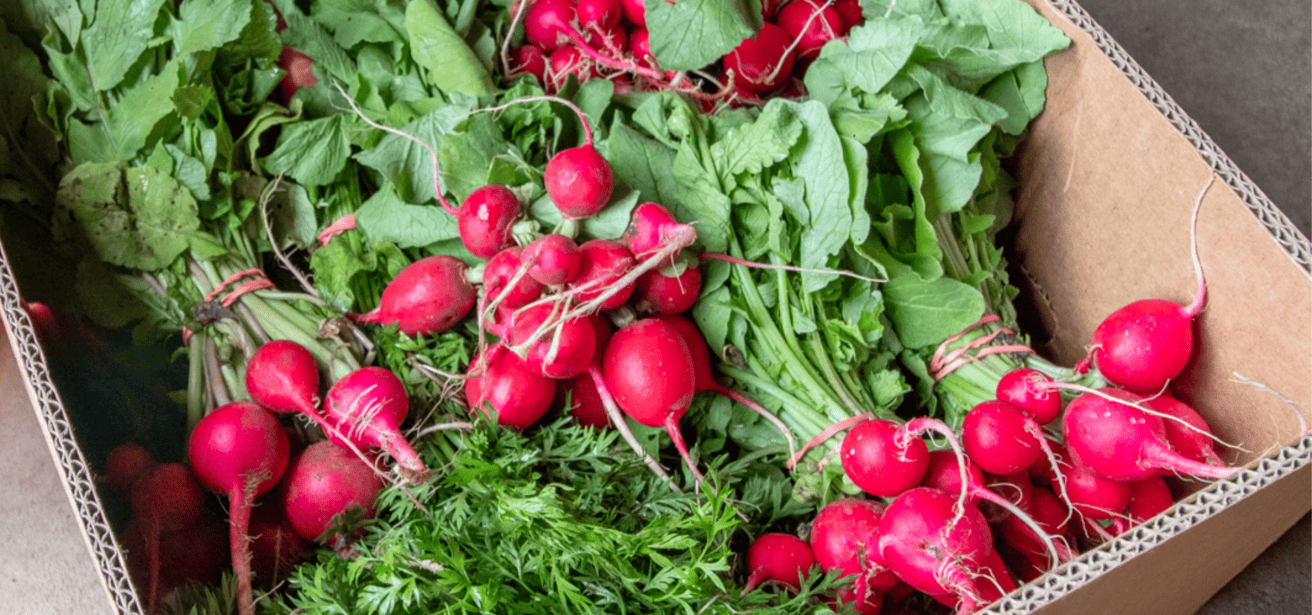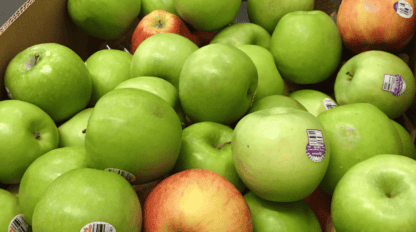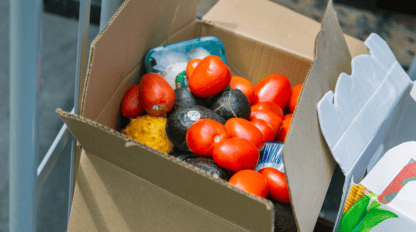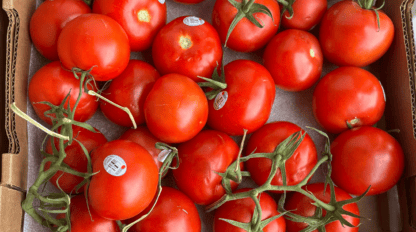Food Literacy: Why it's important

What is food literacy?
Food literacy, simply put, is understanding how the food system works (and sometimes doesn’t): how food is grown and produced, how it impacts your health, why hunger and food waste happen, and much more. Developing an awareness of how food impacts society (everything from the kinds of foods we eat, to what we pay for them, to what resources are available in communities), highlights challenges in our food system and allows us to respond to those challenges head on.
What is food literacy education?
It’s education around the food system – and we think it’s important (so important that it’s among our Advocacy Priorities at Spoonfuls). Helping people gain better foundational knowledge, starting from little on up, enables them to see the links between issues like wasted food, food insecurity, and the climate emergency. It encourages developing habits and making choices that are good for the health of people and the planet.
And, here in Massachusetts, there’s legislation in the works that would add food literacy to the curriculum framework. More about that below!
Is food literacy education taught in Massachusetts’ schools now?
Currently, food literacy isn’t a standard part of Massachusetts’ K-12 curricula. Sure, some teachers weave it into broader lessons in science, social studies, and wellness. And some school gardens offer a hands-on opportunity to learn about food, but it’s not uniformly or widely the case that food literacy education is offered in the Commonwealth. It’s also not included in most teaching frameworks or MCAS preparation. What students are currently learning about food and the food system is limited.
How can we improve food system education?
Legislation to standardize food literacy curricula for Massachusetts’ K-12 schools would support teachers and school districts with additional resources for raising awareness about the problem of wasted food and building it into their teaching frameworks.
Where does food literacy legislation stand?
Recently, there have been two efforts to expand food literacy in Massachusetts’ K-12 schools through both the state budget process and legislation. The two approaches are not dependent on each other. If either passes, that means a significant expansion of food literacy education across the Commonwealth. If both the budget and legislative efforts are successful, however, their complementary parts will combine to create an even more robust and formalized system of professional and curriculum development, funding, and guidance that would encourage teachers to incorporate food literacy into their classrooms and make doing so more accessible.
The budget – approved!
Last year, the state legislature approved $1M for food literacy in K-12 Massachusetts schools through the 2024 budget. This funding supported professional development, expanded wellness coaching, a FRESH Grants program that allowed for the creation of food literacy and nutrition programming, gardens, and more in Massachusetts schools.
Now, in addition to advocating for continued funding in the 2025 budget, the Campaign for Food Literacy is pushing for additional funds to create state-level roles that would coordinate agricultural and food literacy work in school districts across the state.
The bill
Separate, but related to the budget, is a food literacy bill titled, An Act to promote food literacy. This bill would make it easier for food literacy to become a part of the State’s educational standards, establish a funding stream for food literacy in schools, and provide professional development and curriculum support to teachers looking to incorporate food literacy into their classrooms. This bill was recently reported favorably out of the Education Committee and is now in the Senate Ways and Means Committee. This means the bill is gaining support!
How can you support these efforts?
1. Sign on to the MA Food System Collaborative’s petition in support of food literacy education in Massachusetts.
2. Urge your legislators to pass An Act to Promote Food Literacy. Learn more about contacting your representatives through Spoonfuls’ Advocacy Toolkit.


